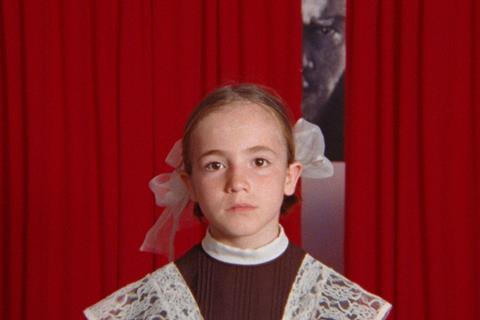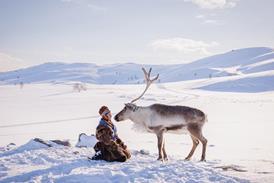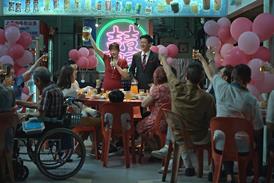Sandu’s exploration of a childhood spent in Crimea and Chechnya opens Venice’s Giornate degli Autori

Dir/scr: Vladlena Sandu. France/Netherlands. 2025. 98mins
Lyrical hybrid documentary Memory allows Ukranian filmmaker Vladlena Sandu to revisit key experiences from her childhood and family history. The therapeutic value lies in recognising how trauma becomes a never-ending cycle as it passes from generation to generation. Part autobiography, part installation, the film offers a striking insight into Sandu’s early life in Crimea and Chechnya following the collapse of the Soviet Union in the 1990s. Festivals should respond to a poetic, highly personal work following its world premiere as the opening presentation of Venice’s Giornate degli Autori strand.
A poetic, highly personal work
In the opening credits, Sandu offers her thanks to a list of filmmakers that includes Tarkovsky, Pasolini and Parajanov, and there are echoes of their work throughout Memory. Sandu provides a wealth of useful context, explaining in voice-over that “this film serves as an act of acknowledging my past.” Born in the ’Autonomous Republic of Crimea, Ukraine, USSR’, she moves to Grozny in the Chechen Republic after her parents divorce. Raised by her grandparents, she lives in an independent Chechnya as Russia begins its 10 year war against its citizens.
Hers is a childhood both ordinary and extraordinary, evoked in scenes where her cool, matter-of-fact narration is matched by warm dramatisations in which Amina Taisumova plays the young, sad-eyed Vladlena. The girl makes a new home, attends school, has her hair braided and discovers the magic of the Rainbow Cinema where King Kong becomes a particular favourite. A man in a gorilla suit becomes a recurring figure, assuming the mantle of her imaginary friend and protector. Red is a dominant colour throughout, Lenin a constant presence and punishment is a first resort in the face of disobedience or the tendency to favour her left hand when writing.
At home, Vladlena faces the reproaches of a stern grandfather, and never understands the events that have made him the man he has become. Vladlena’s own trauma becomes apparent in the way she plays and interacts; her drawings feature scary monsters, and when she plays with dolls it is to decapitate and dismember them.
Sandu constantly illustrates the way play provides a window into the mind of the child. Scenes are staged with dolls and puppets in makeshift toy theatres. Tableaux show how she responds to conflict and loss. Eclectic music choices run from pop tracks to a version of The Blue Danube and, as the war in Chechnya takes hold, the soundtrack is marked by the whistle of passing bullets or the noise of loud explosions. In voice-over, Sandy calmly recalls the blood on the pavements and the bodies in the streets.
Sandu does mine more gentle moments from her memories, such as running through fields of blood red poppies and playing on the beach, but it is the everyday horrors that seem to define her – an uncle who is beaten to death, the 5km walk for drinking water, the food rationing and a sense that history is always written by the victors. There is a kaleidoscopic mix of news reports, archive material and family photographs that capture her past, and the connecting tissue is always trauma.
There are points in which Sandu offers more details on the life of her grandfather Mikhail, who served in the Second World War and of her father Oleg, who becomes a wanted criminal. Their experiences have been passed down both consciously and unconsciously, leaving Sandu to consider how the cycle can be broken in the first of what she claims will be part of a tetralogy based on her life experiences.
Production companies: Mimesis, Limitless, Revolver Amsterdam
International sales: Loco Films. international@loco-films.com
Producer: Yanna Buryak
Cinematography: Liza Popova
Production design: Daria Litvinova
Editing: Vladlena Sandu
Main cast: Amina Taisumova, Selima Agamirzaeva, Vladlena Sandu

























No comments yet